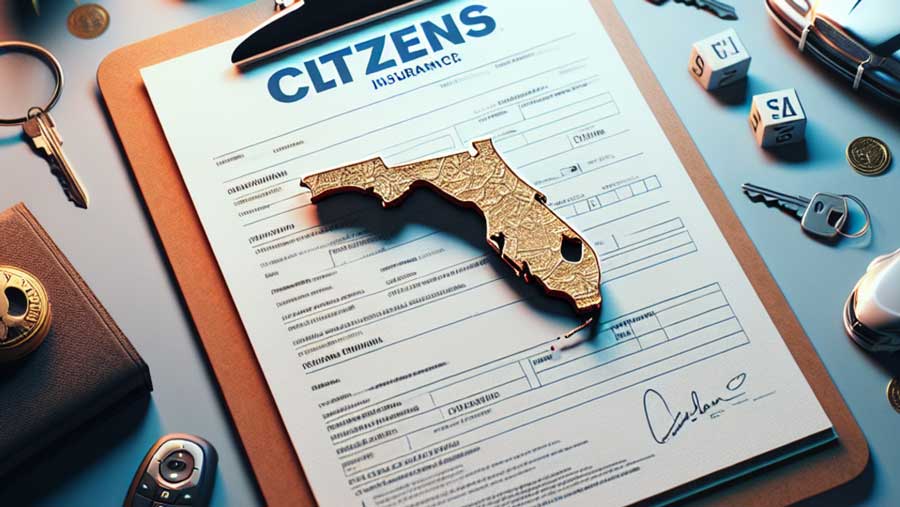Mastering the Claims Process for Citizens Insurance: Step-by-Step Guide
Claims process Citizens Insurance mobile homes can be intricate and sometimes daunting for policyholders. Understanding key aspects that influence this process can greatly alleviate anxiety for current policyholders and those considering mobile home insurance. Citizens Insurance provides unique support for mobile homes, ensuring coverage is both comprehensive and tailored. Being informed about the claims process not only helps streamline the experience but also empowers homeowners to make proactive decisions during potentially stressful times. A clear path to effective claims filing can significantly ease the burden when disaster strikes.
- If you’re aware of the necessary documentation, you’ll be better prepared to file a claim efficiently.
- Understanding your policy’s nuances can help you prevent common pitfalls that lead to delays.
Overview of the Claims Process
The claims process for mobile homes with Citizens Insurance begins the moment policyholders need assistance. As a first step, it is essential to report claims promptly after any damage or loss occurs. In the case of property loss, damage caused by events such as hurricanes or fires can prompt homeowners to seek relief through their policy. Ensuring the claim is reported as soon as possible increases the chances of a smoother process, as timely reporting allows adjusters ample time to assess the damage.
After reporting the incident, policyholders must complete necessary documentation accurately. This step includes providing details concerning the loss, any supporting evidence such as photographs, and repairs already made. Clearly articulated narratives about the circumstances surrounding the claim can help facilitate resolution and address potential challenges in claims processing.
Factors That Can Delay Claims
Multiple factors contribute to the overall speed at which claims are processed. Common delays often stem from:
- Inaccurate or incomplete paperwork, which necessitates follow-ups and additional documentation.
- High volume of claims following catastrophic events can overwhelm staff and resources, causing extensive backlogs.
- Failure to provide timely communication from policyholders concerning additional documents or information.
 A minimalistic depiction of an insurance process symbol.
A minimalistic depiction of an insurance process symbol.
To reduce potential delays, policyholders should be proactive in understanding the required documentation as outlined by Citizens Insurance and ensuring all submission timelines are adhered to. In cases of natural disasters, keeping a log of communications can also support claims processing.
Tips for a Smooth Claims Filing
To ensure a more manageable claims experience, consider these practical tips:
- Stay organized by maintaining a folder comprising your policy details, a record of damage, and correspondence with your insurer.
- Communicate regularly with your claims adjuster for updates and guidance through the claims process.
- Document repair estimates from contractors and gather receipts for any out-of-pocket expenses related to the claim.
These strategies not only expedite the claims experience but also bolster confidence in dealing with adjustments or appeals if necessary.
Understanding Coverage for Mobile Homes
While filing a claim, understanding your coverage specifics can be equally crucial. Coverage for mobile homes typically includes:
- Dwelling Coverage to protect the physical structure against various perils.
- Liability Coverage in case someone gets injured on your property.
- Personal Property Coverage to protect your belongings inside the mobile home.
It’s important to understand what is covered and what isn’t, as any gaps in coverage can complicate the claims process. For example, natural disasters common to Florida may require additional endorsements or coverage options not included in a standard mobile home policy.
Case Study: Successful Claims Resolution
An example of successful claims processing from Citizens Insurance involved a mobile homeowner affected by a hurricane, who faced extensive roof and water damage. By promptly filing a claim and providing necessary documentation, including photographs and repair estimates from local contractors, the homeowner received a full payout within weeks. This expedited process was largely due to thorough pre-claim preparation and clear communication with the insurance representative. As a result, the insurance company was able to settle the claim adequately and swiftly for the homeowner, illustrating the importance of timely claims submission and supportive negotiation.
Common Documentation Required
When you’re preparing to file a claim, gathering the necessary documentation is vital. Typical documentation requirements may include:
- Your policy number and personal identification information.
- A detailed list of damaged or lost items, including receipts or proof of value.
- Photographs of the damage and any actions taken during the incident.
Ensuring you have all necessary documents organized will streamline the entire claims process and prevent unnecessary delays. It’s advisable to create a claim binder that keeps all related paperwork in one accessible location.
Understanding Your Rights and Responsibilities
As a policyholder, it’s essential to recognize your rights and responsibilities during the claims process. Knowing your rights helps to safeguard against unfair practices and ensures you receive appropriate support. Key rights include:
- The right to fair treatment and a clear explanation of policy terms.
- The right to appeal if you disagree with your claim resolution.
By knowing your rights and responsibilities, you enhance your ability to communicate effectively with your insurer, leading to a more balanced claims process.
Special Considerations for High-Risk Areas
Homeowners in hurricane-prone areas should be particularly aware of special considerations when filing claims. Policies may vary significantly due to geographic risks, influencing factors like:
- Higher deductibles specifically for windstorm or hurricane damage.
- Requirement for additional flood insurance reflecting local regulations and risks.
Being proactive about understanding these variables ensures that you effectively navigate the claims process in scenarios particularly relevant to your environment.
Insurer Communication and Transparency
Open communication with Citizens Insurance or any insurance provider can make a marked difference in the claims outcome. Key points to consider include:
- Establishing a contact point with your claims adjuster ensures that you have a reliable resource for questions.
- Requesting periodic updates can help you stay informed of where your claim stands and what steps to expect next.
Transparent communication fosters trust and cooperation, making it easier to address any concerns that arise during the claims process.
Preparing for Future Claims
Preparation is key to minimizing future claims issues. Develop a comprehensive plan:
- Conduct regular home inspections to identify potential issues before they escalate.
- Invest in preventative maintenance, especially for mobile homes that may be more susceptible to weather-related damage.
These steps will not only help reduce your risk of having to file a claim but also strengthen your position if you need to do so in the future.
Frequently Asked Questions
Q. What steps can I take to ensure my claim is processed quickly?
A. Be proactive by keeping detailed records, submitting claims promptly, and thoroughly understanding your policy coverage. Regular communication with your claims adjuster can also streamline the process.
Q. How often can I communicate with my claims adjuster?
A. You can and should communicate with your claims adjuster as often as necessary. Establishing a regular check-in schedule helps to clarify doubts and updates throughout the process.
Conclusion
Claims process Citizens Insurance mobile homes require attention to detail but can be effectively managed with the right knowledge and preparation. By understanding what impacts the claims process, gathering necessary documentation, and maintaining open communication, policyholders can significantly reduce anxiety and improve overall satisfaction. To ensure peace of mind for the future, take steps today to secure the proper coverage and prepare for any potential scenarios that could disrupt your life. If you’re not yet covered or looking to switch policies, consider getting a quote today!
